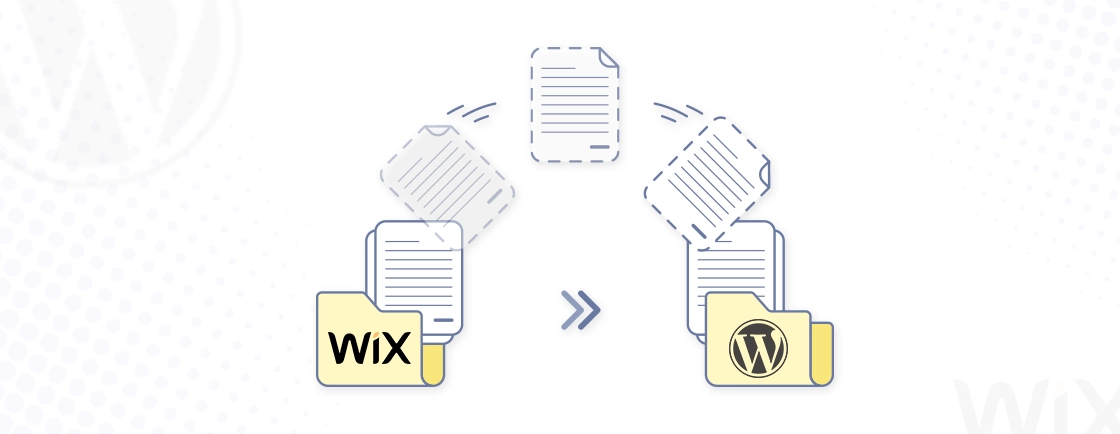Table of Contents
In the ever-evolving digital landscape, websites serve as the digital face of businesses and individuals alike.
Over time, the need for enhanced features, a user-friendly interface, and a thriving community of users and developers often lead website owners to consider migrating to WordPress from other Content Management System (CMS).
One such migration gaining traction is the move from Joomla to WordPress. This blog post is your comprehensive guide to understanding the intricacies of this transition, offering valuable insights, practical tips, and a step-by-step roadmap for a seamless migration. Migrate from Joomla to WordPress with this article in no time!
Understanding Joomla and WordPress
Joomla and WordPress are both part of the best content management systems (CMS) tools that empower website owners to create and manage digital content effectively.
While they share the goal of simplifying website management, they differ in several key aspects, including ease of use, community support, and flexibility. To help you better appreciate the distinctions between these platforms, let’s explore them through a comparison table:
This table offers a quick overview of the strengths and characteristics of Joomla and WordPress, setting the stage for a well-informed decision regarding your migration.
| Feature | WordPress | Joomla |
|---|---|---|
| Ease of Use | Known for its user-friendliness | Offers robust features but has a steeper learning curve |
| Community Support | Boasts a vast, global community and a wealth of online resources. | Has an active community with extensive documentation and support forums. |
| Flexibility | Extremely flexible with a plethora of plugins and themes for customization. | Highly flexible, well-suited for complex websites and custom solutions. |
| E-commerce Capabilities | Outstanding e-commerce capabilities with plugins like WooCommerce. | Supports e-commerce, but may require more effort for extensive setups. |
| Security | Frequent updates and strong security features. | Regular updates are crucial for security, and security measures need to be set up. |
| SEO | Outstanding SEO capabilities and numerous SEO plugins. | Provides good SEO features but requires optimization. |
This table offers a quick overview of the strengths and characteristics of Joomla and WordPress, setting the stage for a well-informed decision regarding your migration.
To migrate from Joomla to WordPress, here are some suggestions:
- Plan Ahead: Before making the move, create a detailed migration plan. Identify your goals, timeline, and resources required. This plan should include a content audit, a list of essential features, and a comprehensive strategy for the transition.
- Content Migration: One of the most critical aspects of the migration is moving your content. Utilize migration tools or take assistance from migration services providers to ensure that your articles, images, and other content elements are seamlessly transferred to WordPress. Pay special attention to maintaining formatting and metadata.
- Redirects: Implement 301 redirects for old Joomla URLs to new WordPress URLs. This helps preserve your SEO rankings and ensures that users and search engines can still find your content without encountering broken links.
- Theme Selection: Choose a WordPress theme that suits your website’s design and functionality needs. Customizing a theme to match your brand is often more straightforward in WordPress, thanks to its user-friendly theme customizer.
- Plugin Integration: Utilize WordPress plugins to replicate the features and functionalities you had in Joomla. There are thousands of plugins available for WordPress, covering everything from SEO to e-commerce. Research and select the ones that best fit your requirements.
- Testing and Optimization: After the migration, thoroughly test your website. Ensure that all content is displayed correctly, links work, and the user experience is smooth. Optimize your website for speed and SEO, and don’t forget to set up regular backups to safeguard your data.
By following these suggestions, you can navigate the migration from Joomla to WordPress with confidence, maintaining and potentially enhancing your website’s performance and user experience. For a comparison involving another robust CMS, explore our Drupal to WordPress migration guide, which addresses similar enterprise-level considerations.
Benefits of Migrating from Joomla to WordPress
Undoubtedly, Joomla has also to offer, but on the other hand, WordPress offers numerous advantages with fewer implementation complexities that can enhance your website’s performance and user experience.
1. Ease of Use
WordPress is renowned for its user-friendly interface, making it accessible to users of all technical backgrounds. Updating and managing your website becomes a breeze, saving time and reducing the learning curve.
2. Wider Choice of Themes & Plugins
WordPress boasts an extensive library of themes and plugins, offering you a vast array of design options and functionalities. Whether you need a simple blog or a complex e-commerce site, you’ll find suitable options to match your vision.
3. Better SEO
WordPress is inherently optimized for search engines. With clean code, mobile responsiveness, and numerous SEO plugins, you can improve your website’s visibility on search engines and enhance your rankings.
4. Thriving Community
WordPress has a global and active community of users and developers. You can tap into this vast network for support, troubleshooting, and updates. The availability of online resources and forums ensures you’re never left in the dark.
5. Security
WordPress places a strong emphasis on security, with frequent updates and a vigilant development team. By staying up-to-date and following best practices for WordPress security, you can reduce the risk of your WordPress site getting hacked, malware infection, and other potential threats to your website.
6. Seamless Integration
WordPress provides seamless integration with various third-party tools and services. Whether you need to connect with social media, analytics platforms, or other web applications, WordPress offers a plethora of plugins and extensions to streamline the process.
Migrating from Joomla to WordPress is a strategic move that not only simplifies website management but also empowers you with a diverse range of tools and resources to enhance your online presence. These benefits collectively contribute to a more efficient, attractive, and secure website.
Prerequisites for the Joomla and WordPress Migration Process
Before starting on the migration from Joomla to WordPress, it’s crucial to undertake thorough prerequisites to ensure a seamless and successful migration.
1. Backup Your Joomla Website
Before making any changes, create a complete backup of your Joomla website. This step is essential to safeguard your data in case of any unforeseen issues during the migration process. Use reliable backup tools or consult your hosting provider for assistance.
2. Review & Update Content
Conduct a thorough content audit on your Joomla website. Review and update your content to ensure it’s accurate, relevant, and error-free. Take this opportunity to consolidate or reorganize content if necessary, keeping your future WordPress structure in mind.
3. Clean Up Database
Optimize your Joomla database by removing any unnecessary data or outdated records. Conducting practices not only assures a reduction in the amount of data to migrate but also contributes to a smoother, more efficient website on the WordPress platform.
4. Choose a WordPress Theme
Select a WordPress theme that aligns with your website’s goals and design preferences. Whether you opt for a free theme or invest in a premium one, choose a theme that can be customized to reflect your brand identity and fulfill your specific requirements.
5. Install Essential Plugins
Identify and install essential plugins that will replicate the features and functionalities you had on your Joomla site. These may include SEO plugins, contact forms, eCommerce tools, and any other functionality unique to your website. Make sure to configure these plugins to suit your needs.
6. Test Migration
Before making the migration live, set up a WordPress staging site to test the migration process thoroughly. You must ensure that all content, images, links, and functionalities are correctly transferred to WordPress. Resolve any issues or discrepancies in this testing phase to prevent complications when going live.
By meticulously preparing for the migration process with these steps, you’ll be better equipped to navigate the transition from Joomla to WordPress, minimizing the risk of data loss and technical hiccups, and ensuring a successful migration that aligns with your website’s goals and vision.
Choosing the Joomla to WordPress Migration Method
When transitioning your website from Joomla to WordPress, selecting the right migration method is crucial. Different methods offer varying levels of control and complexity.
1. Manual Migration
Manual migration involves transferring your content and data from Joomla to WordPress by hand. This method provides the highest level of control, allowing you to meticulously curate your content and structure in WordPress.
It’s ideal for smaller websites with straightforward content. However, it can be time-consuming if you are familiar with technical terms. To overcome such stressful pinpoints, you can also directly consult and request assistance from WordPress migration services providers.
2. CMS2CMS
CMS2CMS is an automated migration service that streamlines the process of moving from Joomla to WordPress. It’s a user-friendly option that offers a quicker transition, automatically transferring content, images, categories, and metadata.
This method is suitable for those without advanced technical skills but may have some limitations in terms of customization. These migration methods work across different CMS platforms. Learn about enterprise migration approaches in our Sitecore to WordPress migration guide.
3. FG Joomla to WordPress
The FG Joomla to WordPress plugin is a specific tool designed for Joomla to WordPress migration. It provides a convenient way to move your content, including articles, images, and categories, while also offering features like URL rewriting.
This premium option is a middle-ground solution, combining automation with customization, making it suitable for websites with moderate complexity.
The choice of migration method should align with your website’s size, complexity, and level of technical expertise. Each method has its strengths and limitations, so selecting the one that best suits your needs is essential for a successful transition from Joomla to WordPress.
Post Joomla to WordPress Migration Checklist
After successfully migrating your website from Joomla to WordPress, it’s crucial to follow these steps to ensure your new WordPress site is fully functional and optimized.
1. Check URL Redirects
Verify that your 301 redirects from Joomla URLs to their corresponding URLs are functioning correctly. This is essential to maintain your WordPress SEO rankings and prevent broken links.
2. Review Content & Formatting
Go through your migrated content to ensure it appears correctly in WordPress. Pay attention to formatting, images, and embedded media. Make any necessary adjustments to maintain a polished look.
3. SEO Optimization
Revisit your SEO settings and metadata. Ensure that your titles, descriptions, and keywords are in line with your WordPress SEO strategy. Consider using SEO plugins to enhance your site’s search engine visibility.
4. Test Functionality
Thoroughly test your website’s functionality. Check contact forms, e-commerce features, and any interactive elements to ensure they work as intended. Resolve any issues or broken links promptly.
5. Performance Optimization
Optimize your site for speed and performance. Implement WordPress caching, image compression, and minification to enhance loading times. Regularly monitor your site’s speed and make improvements as needed.
By following this post-migration checklist, you can ensure a smooth transition from Joomla to WordPress and maintain a high-performing, user-friendly website. This proactive approach will help you avoid potential issues and provide a positive experience for your site’s visitors.
Conclusion
Migrating from Joomla to WordPress is a strategic move, offering benefits like user-friendliness, unbounded possibilities with numerous themes and plugins, enhanced SEO, a thriving community, and robust security.
To ensure a seamless transition, you must first back up your Joomla site, update content, clean up your database, choose a reliable WordPress theme, install essential plugins, and thoroughly test.
While SEO fluctuations and risks are possible, proper planning and expert help can mitigate them. In the end, WordPress offers a user-friendly, versatile, and effective platform for your online presence. Looking for experienced migration experts? Our team has you covered with over 5+ years of expertise in the field. To schedule a personalized 1:1 consultation, request a quote today.
FAQs About Migrating from Joomla to WordPress
Will my website’s SEO be affected during the migration
There is a possibility of some temporary fluctuations in search engine rankings during the migration process. However, by following SEO best practices and implementing proper redirects, or taking help from professionals, you can minimize any negative impact. It is advisable to consult with an SEO specialist to ensure a smooth transition and preserve your website’s SEO value.
Are there any potential risks involved in migrating my website?
While migrating from Joomla to WordPress can be a straightforward process, there are a few risks to consider. These include potential data loss, loss of custom functionality or design elements, and compatibility issues with specific Joomla extensions or themes. It is crucial to maintain a backup of your Joomla website and thoroughly test the migrated site before going live.
Can I keep my website running during the migration process?
Yes, it is possible to keep your current Joomla website running while you perform the migration to WordPress. However, it is recommended to set up a test environment or staging site to carry out the migration process to prevent any disruptions to your live website. Once the migration is complete and thoroughly tested, you can switch your domain to the new WordPress site.
Create with WordPress CMS
Build flexible and scalable websites using WordPress's powerful content management system.





